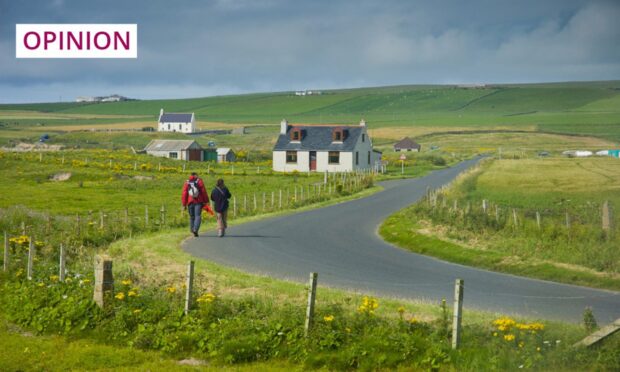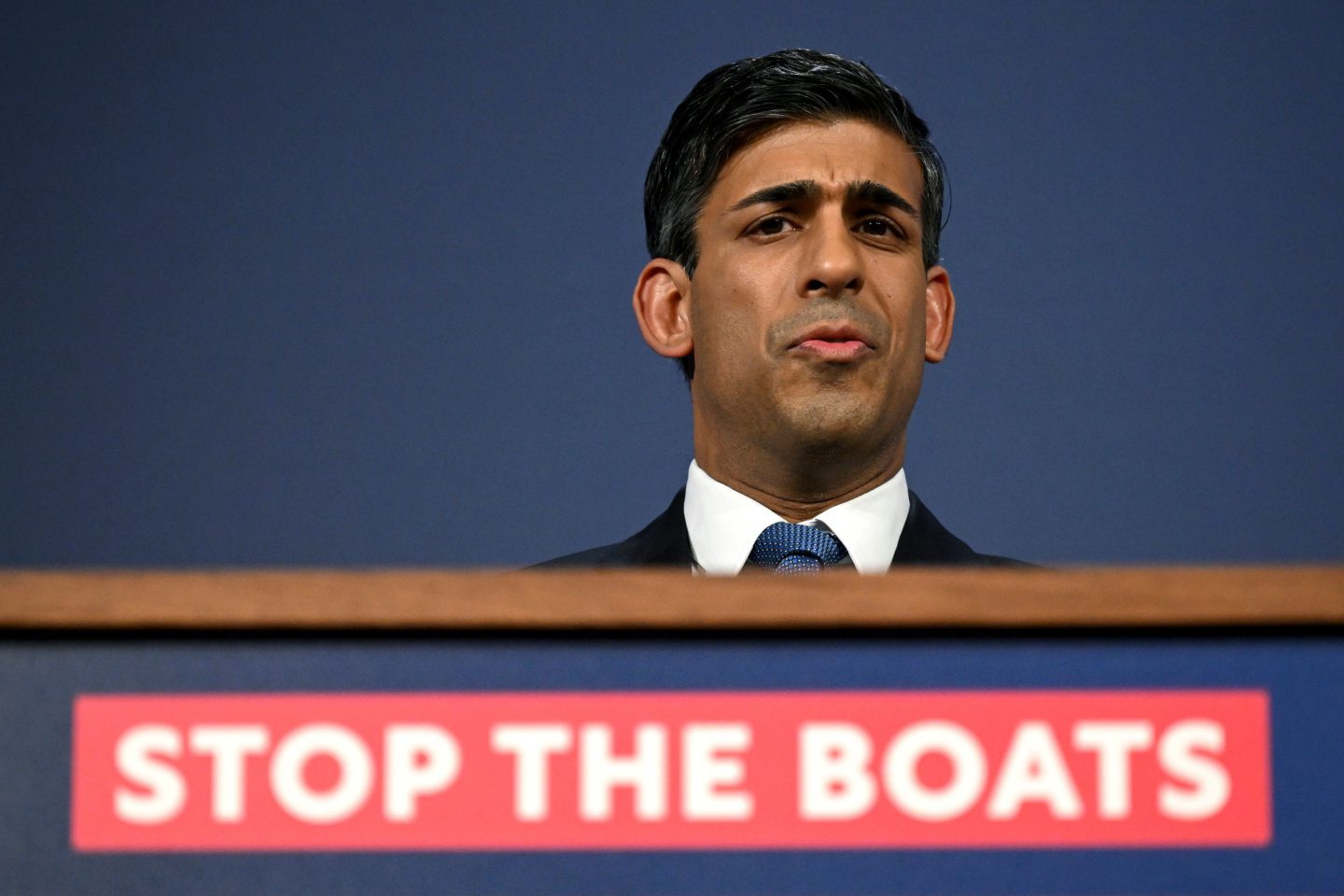“Where are you from?”
It’s a question that always stumps me. Having moved around all my life, I have no clear place of origin.
The closest I can claim to a place of belonging is Cumbria, where I lived for 25 years, until late 2022. It was where I married, gave birth, and buried those I loved.
My paternal heritage traces back over seven generations of miners, born and raised in West Cumberland. And, yet, I was an “off-comer” – a not-belong. My own father left as a child, his family forced south by poverty and unemployment. As a result, I could never claim it home. Now, having moved away, my son will not be able to do so either.
Instead, we have travelled north to Orkney: a place that made front-page news late last year, after the Conservative MP Lee Anderson declared asylum seekers “fleeing so-called persecution” could be rehoused on a “remote island in the Orkneys, or up there, that’s got no one on”.
Indeed, these islands are seen as so distant that friends and colleagues further south have genuinely asked us if we can get “normal food” and have a phone. (The answer, by the way, is yes.)
Asylum seekers should be sent to Orkney or some other remote island in Scotland, says Tory deputy chair Lee Anderson. pic.twitter.com/V4fMezuxyl
— Phantom Power (@PhantomPower14) November 23, 2023
We moved here in November 2022, the boat docking on the back of a storm. Blow-ins, new-islanders, we arrived with our two guinea pigs, elderly cat and several boxes of lifetime tat to make this our home.
I’ll never be an Orcadian, but we have been welcomed. Not with overbearing or excessive camaraderie, but with warmth and a gentle interest in our lives.
We like it here. It suits us and, though I still forget at times that this is where we live now, we are slowly putting down roots. I’ve started to grow a garden, learning not to measure seasons by blossom or heat but by water, wind, and the migration patterns of birds.
We are all blow-ins
The landscape and language of this archipelago of low-lying islands has been shaped and reshaped by the sea, and all that it brings and takes away. From the Mesolithic settlements that now lie submerged under the waves, to the world-famous Neolithic sites dating back over 5,000 years, to the Iron-Age broch-builders, and the invading Vikings whose influence is evident in the stories, place names, dialect and genealogy of this land – each new blow-in bringing change.
I am part of that change, too. And that is the thing – we are all blow-ins; this small island I live on a microcosm of the larger island that sits seven miles south from the port. We are defined by change, each new arrival bringing with them something to add to the whole, taking with them something to share with what lies beyond.
John Donne famously wrote: “No man is an island, Entire of itself; Every man is a piece of the continent, A part of the main.” And, yet, isn’t that what the current narrative is leaning towards?
When politicians try to win votes by promising to “stop the boats” – a slogan and rule first coined by Australia, a country whose own migration history is impossible to ignore – I wonder how far we have moved away from the humanity Donne strove for in his words. We are not under “invasion”; we are not at war with those who arrive seeking hope on these shores.
I understand, too, how potent the language of insularity is, particularly in times of scarcity and fear
Yet, I understand, too, how potent the language of insularity is, particularly in times of scarcity and fear. I see it here, in this island I have called home: a lack of housing, driven by a proliferation of second homes; a demand on a struggling infrastructure, designed for a smaller (and younger) population; a rising cost of living, exacerbated by fuel poverty and lower incomes.
In some respects, I am a product of those issues; our family priced out of Cumbria not once but twice – first when my father walked to the docklands in the south with his family, seeking work, and then when my own family moved here, unable to afford a home in the place where my son was born.
‘Us and them’ scenario thrives on lack
It’s easy to seek out a solution that doesn’t demand radical action and change. The “us and them” scenario thrives on lack. But, perhaps we need to read further into the Donne poem. “Any man’s death diminishes me, Because I am involved in mankind. And therefore never send to know for whom the bell tolls; It tolls for thee.”
We are part of the whole – not singular, but joined by the expanses of water that touch our lands.
Islands have always been “safe harbour”; the place we find shelter from the storm, the dry land from which the dove returns, clutching the single olive branch. They are places of welcome, where the stranger is “gladly received”. I want to be defined by that.
Victoria Bennett is an award-winning poet and author living in Orkney


Conversation